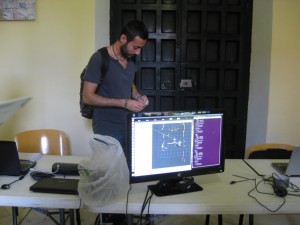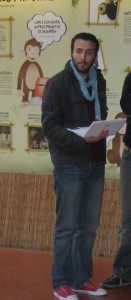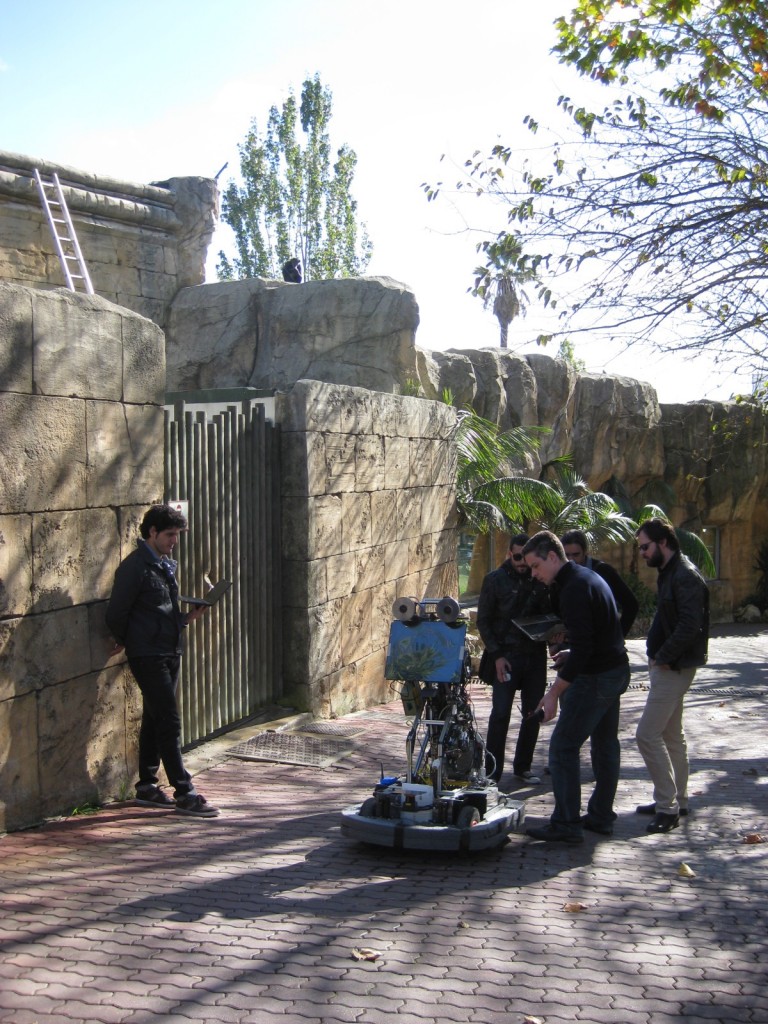You will find some of UPO’s output for FROG and other research projects here: Luis, datasets and publications.
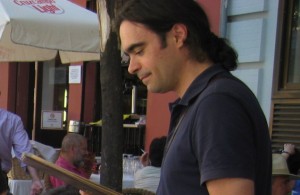
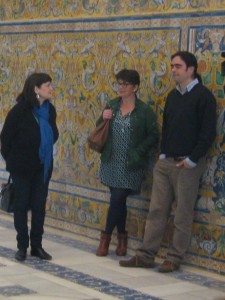
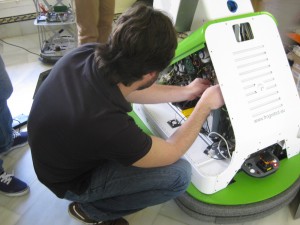
Luis and Fernando lead and supervise UPO’s team of young researchers………..
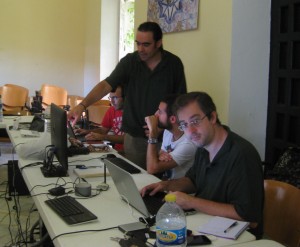
Ignacio Pérez Hurtado de Mendoza is a computer science postdoc interested in the application of machine learning techniques to social robotics. In the FROG project supports the development of software modules related to the navigation of the robot and assists with the deployment of experiments.
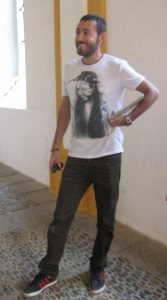
Noé Pérez Higueras is in charge of the safe and robust navigation of the FROG robot in (indoor and outdoor) environments with people. Noé is trying to add social capabilities to navigation algorithms so that the robot respects human social conventions and guarantees the comfort of surrounding persons.
Noé’s PhD is directly related to his work in the FROG project. Mainly, he is studying the different robot navigation algorithms and trying to extend them by adding social skills. To do that he employs machine learning techniques in order to learn from real people how they navigate between each other in crowded scenarios.
In 2014 Noé spent 3 weeks in the Netherlands, mapping the Gallery at the University of Twente for the opening ceremony with the Dutch king.
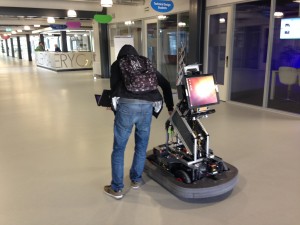
Noé fitted in well with the UT PhDs and will continue to work with some of them in the TERESA project. When he makes a website we will link to it here.
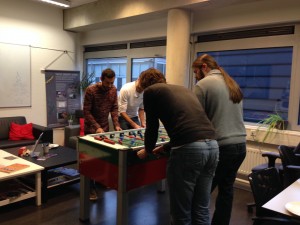
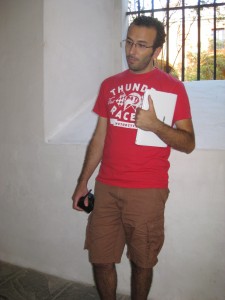
In the FROG project, Javier Pérez-Lara is working on improving localisation algorithms, based not only in laser readings but also on appearance matching, to recover from erroneous convergences to wrong localisation or even recovering from complete lost situations.
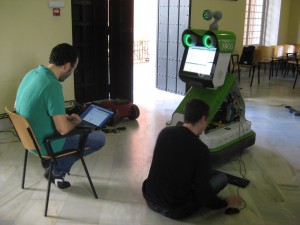
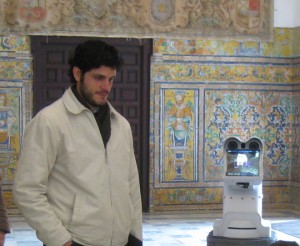
Rafael Ramón Vigo’s knowledge of transversal competences like electronics, software and hardware are all put to good use in the FROG project. Rafael provides help with the general set up of the robotic platform and assists with the deployment of experiments.
Rafael’s PhD thesis work is on how to infer from data and its statistics the insights of human motion navigation, with the idea of transferring it to the robot’s navigation stack. The basis of this approach is to use machine learning algorithms.
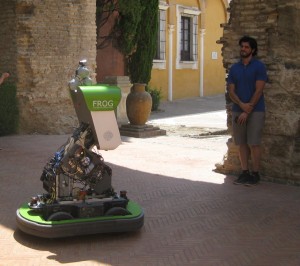
Rafael also grows delicious mangoes. Recently his family planted nearly 2000 young trees that will come into production in 4 or 5 years time.
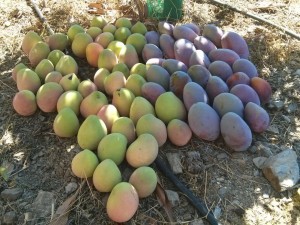
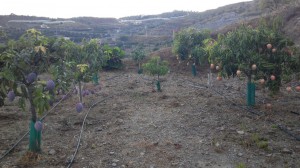
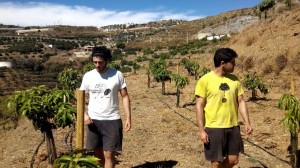
- In 2013, Noé, Javier and Rafael had to spend weeks at a time in Lisbon. Though often cold or very tired, they did discover some good places to eat and were given Wi-Fi access at most of them.
